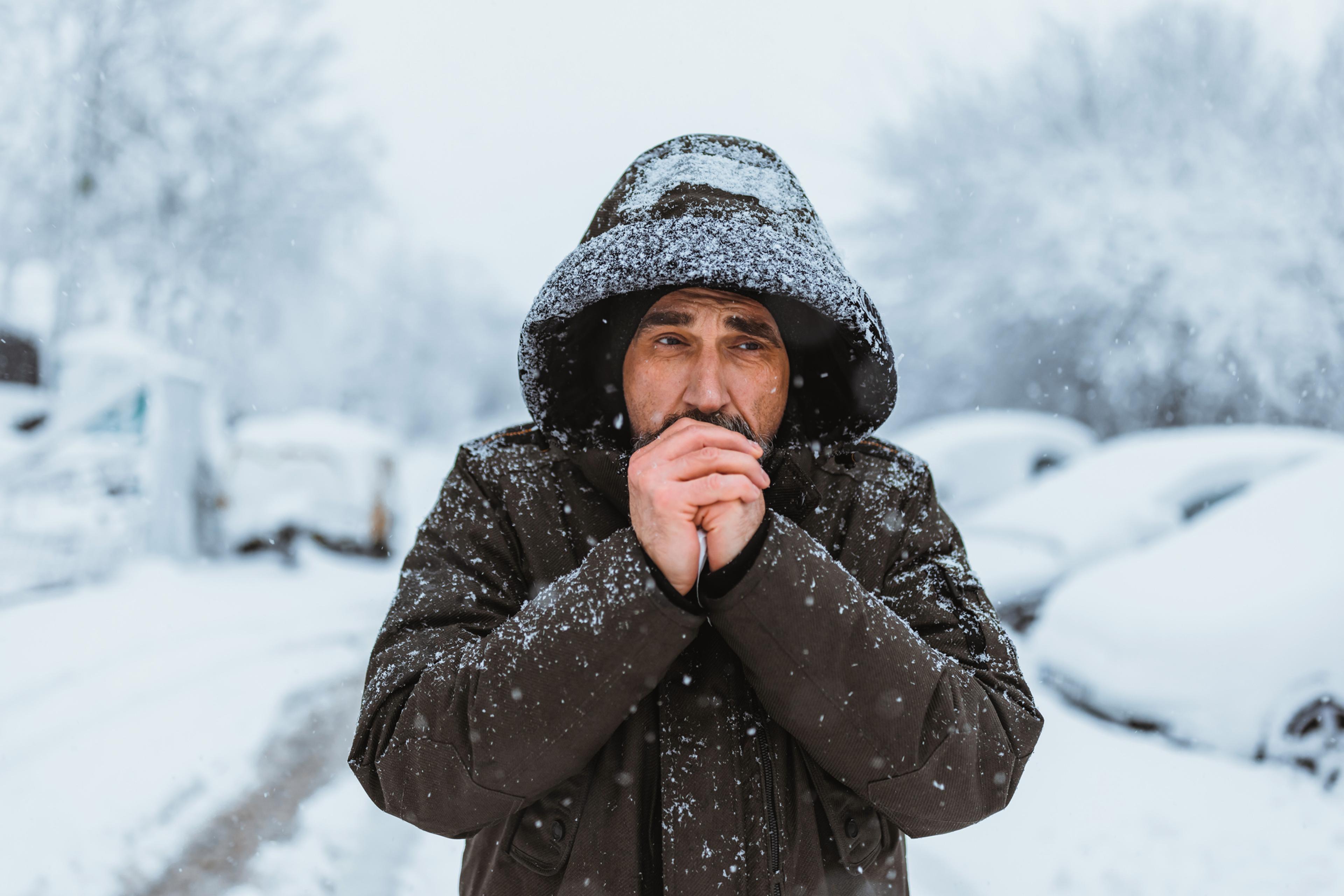Street Outreach Teams’ Mobile Clinic Delivers Direct Medical Care to Homeless, Sex Trafficking Victims and Others in Detroit
Jake Newby
| 6 min read
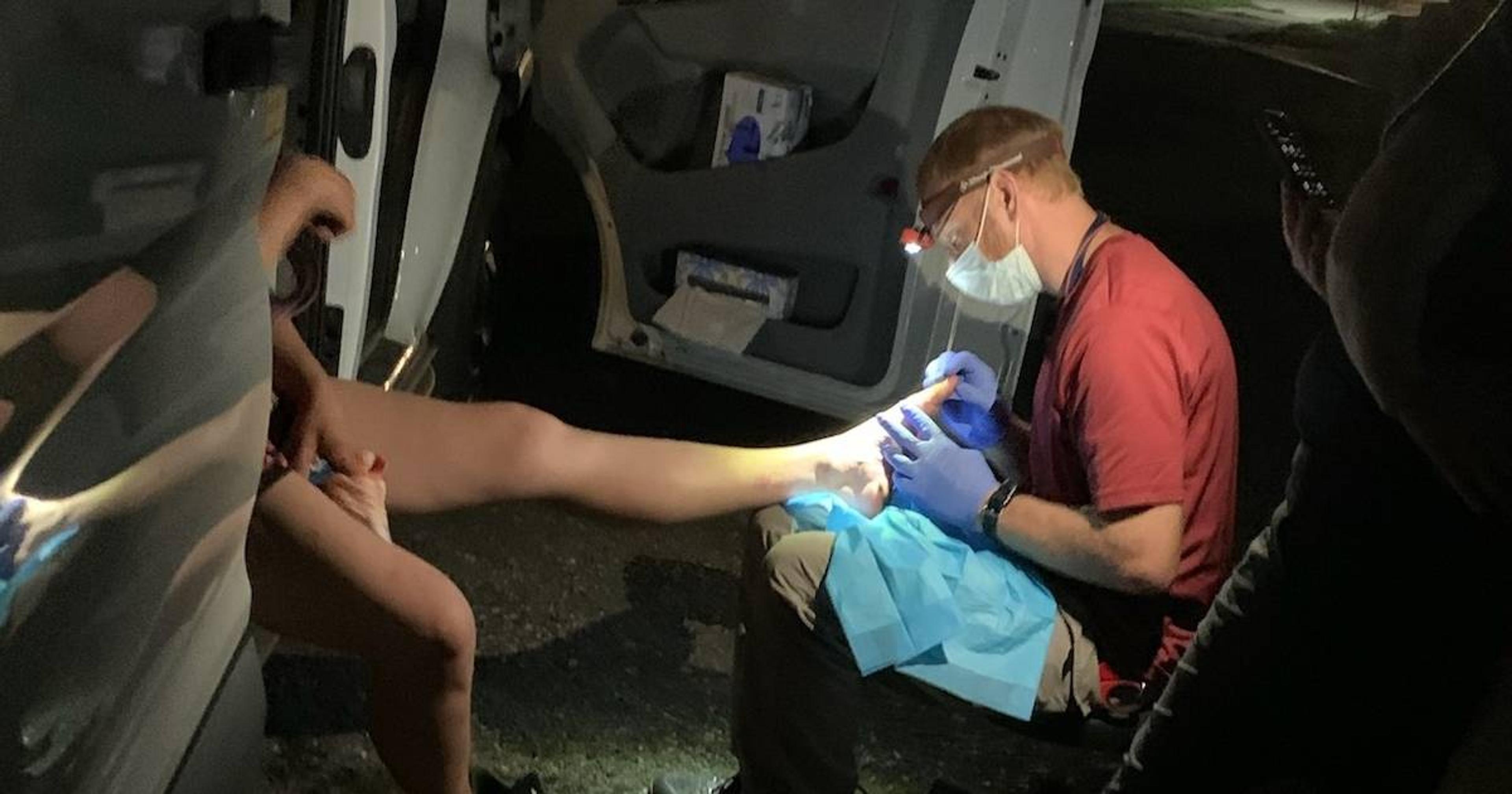
Stanley Stinson knows what it’s like to be homeless. Intermittent periods of homelessness in his youth inspired Stinson to help others facing similar, usually harsher, plights. His journey as a registered emergency room nurse and president and founder of Street Outreach Teams (SOT) led him directly to his passion in life, which to perform outreach and crucial medical care services for at-risk populations.
“We work directly with rough-sleeping (people experiencing) homelessness, and through that we identify addiction, and sometimes sex trafficking victims,” Stinson said of SOT, which is a free mobile clinic staffed by volunteer medical professionals who serve the unhoused people in Detroit and its surrounding communities.
“We help them find safety, stability and we connect them with basic needs, supplies and resources,” he added. “Our big component is we provide direct medical care. Wherever we find someone, whether it’s under a bridge, in a field, a tent or in an abandoned house, we provide care right there.”
There is typically overlap between rough sleeping, illegal drug use, sex work and sex trafficking, connections Stinson researched and wrote about as part of a recent joint study. An obvious stigma looms over these individuals, but what Stinson sees that others may not is that many of these people want to break the cyclical nature of these overlapping lifestyles. When seeking out people to provide medical care, Stinson and the SOT often learn that people want to get back on their feet. They want to find better health, a living space, a job and just a better way of life.
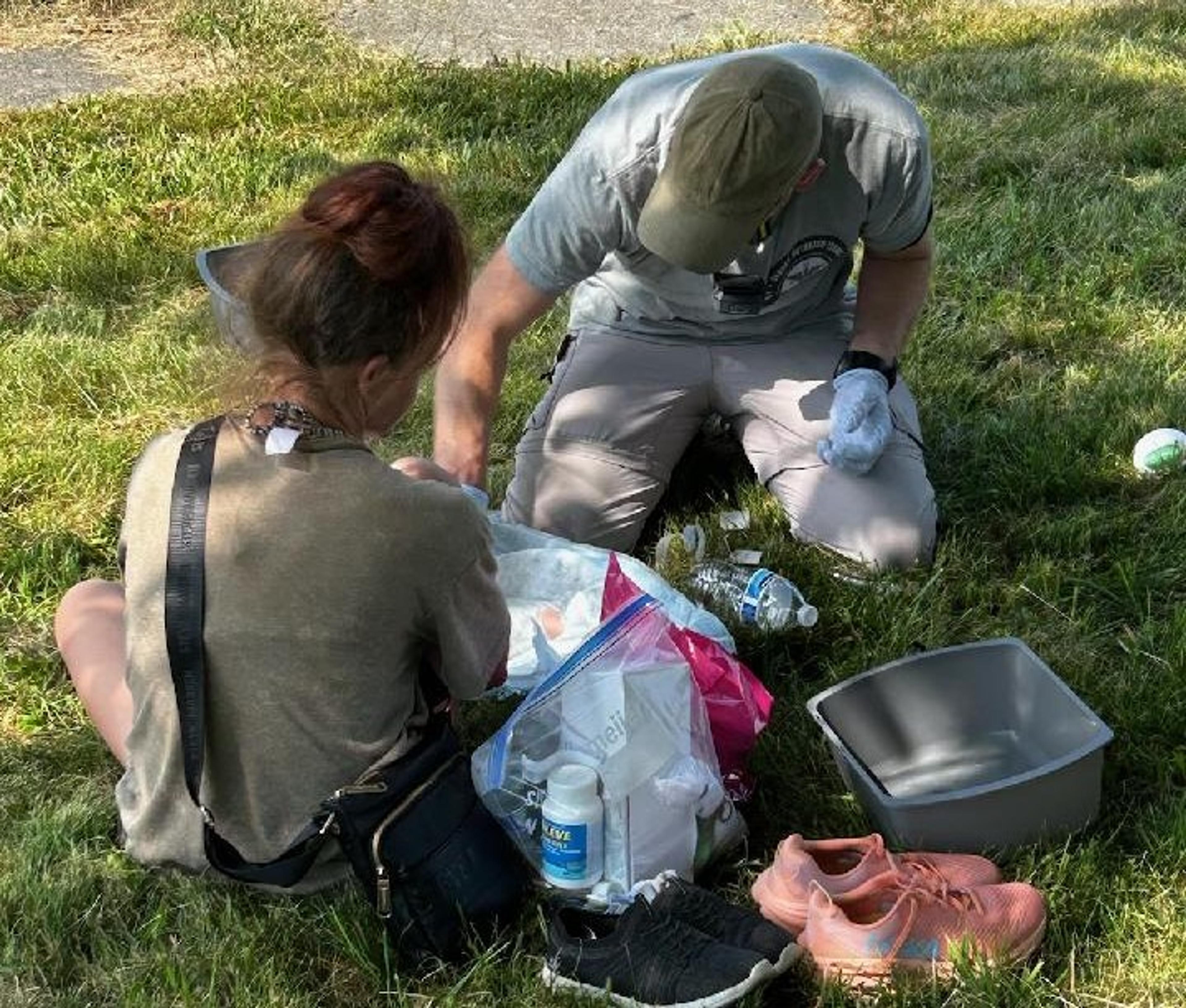
Since 2021, SOT has cared for more than 6,000 patients, most of whom have substance use disorder and many who are sex workers. A woman Stinson worked with extensively this past year is one of those people. He gave her the pseudonym “Tonya.”
“We had a person who screened positive for trafficking, rough sleeping, sleeping outside. She seemed to be under the control of multiple people,” Stinson said. “We slowly but surely developed a relationship with her. She was maybe 21 when we first met her. We started seeing her, trying to help her. We started off with just giving her food. Then it was giving her blankets and survival equipment to stay warm. Then we slowly started treating her for sexually transmitted diseases.”
SOT establishes trust with patients like Tonya by responding to basic needs before anything else.
“When we go out there, we don’t get out of the car empty-handed,” Stinson said. “We go out with food, harm reduction supplies and condoms for sex workers.”
The SOT connected Tonya with Dr. Shaina Shetty, a family physician who is passionate about providing high quality patient-centered care to all patients, regardless of their ability to pay. Shetty, who specializes in the management of substance use disorders, HIV/Hepatitis C, initiated HIV treatment. As Tonya continued to receive care, SOT connected her with housing specialists to attempt to solve her rough sleeping problem.
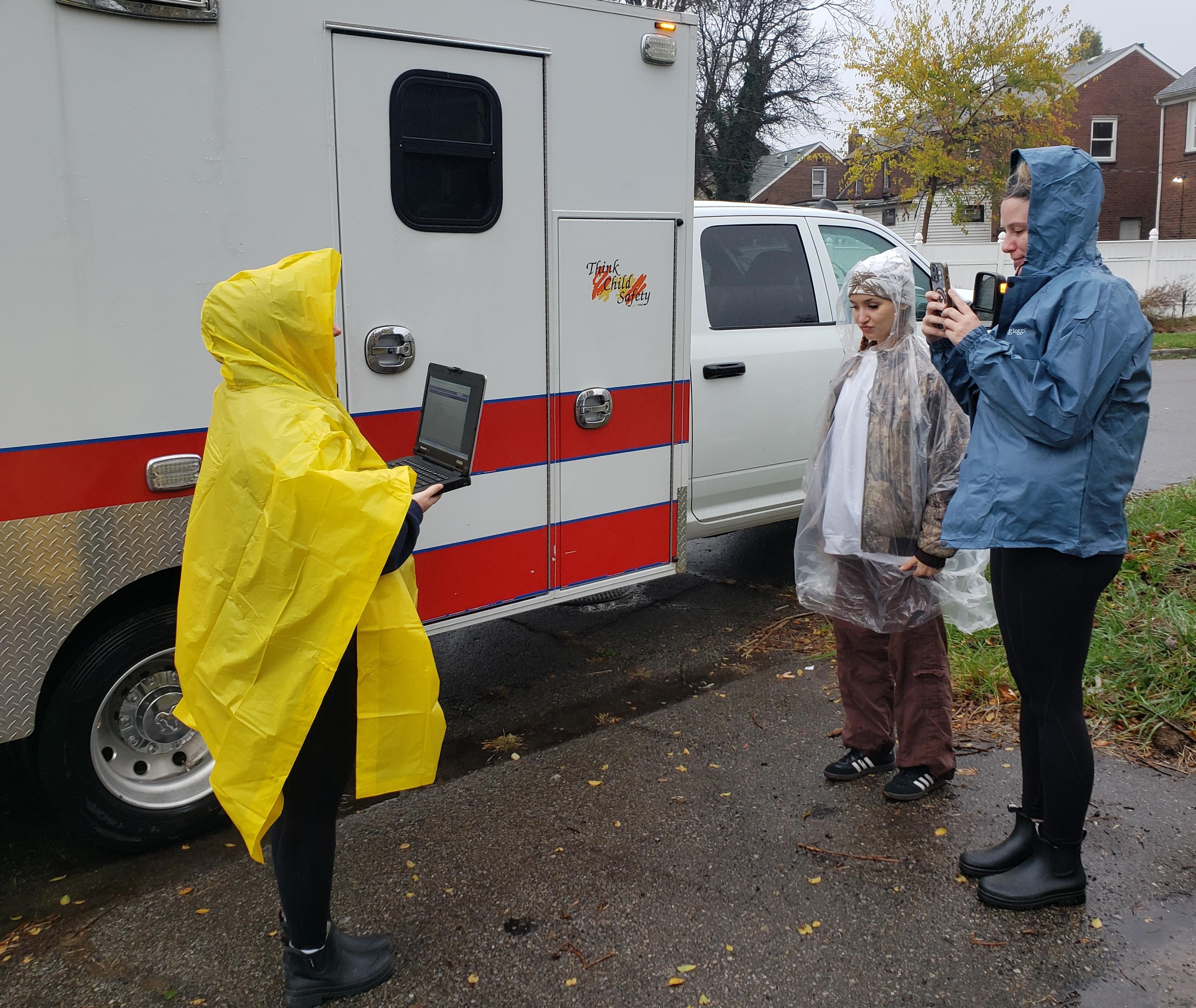
“The really cool part is, I think that as of this past spring, Tonya is now undetectable (for HIV),” Stinson said. “She’s now housed, too, she’s been housed for months. She’s doing much better and it’s a very amazing story. One time we were having trouble not seeing her … we thought we lost her. But she texted my cell phone one day and said, ‘Stanley don’t give up on me. Please don’t ever give up on me.’
“That really stuck with me,” Stinson added. “I printed that out and I look at it pretty much every morning when I wake up because it motivates me not to give up on people even when they’re resistant and it seems like they’re resisting your care. Because that’s OK, they’re autonomous. We work with them, to work on what they want to work on, when they want to work on it.”
Blue Cross Blue Shield of Michigan Strengthening the Safety Net grant helps SOT treat more at-risk individuals in need
SOT has been a Blue Cross Strengthening the Safety Net grantee since 2022, receiving grant funds to cover operating expenses. SOT provides care from a semi-retired ambulance, and Blue Cross funds have helped stock that ambulance with life-saving equipment and resources, including a Toughbook laptop.
“The grant helped us secure a Toughbook, which is a really rugged laptop computer that we carry. It can be dropped, it can be used in the wind, rain and snow,” Stinson explained. “It went toward some of our vitals equipment, like how we do blood pressure. It went to a lot of our high-give items and most-used items, like wound care supplies, wound care dressings and gauze, things like that.”
Stinson added that Blue Cross’ support also help SOT purchase bus tickets, so recipients of care have transportation to travel to clinics or centers when SOT facilitates advanced care.
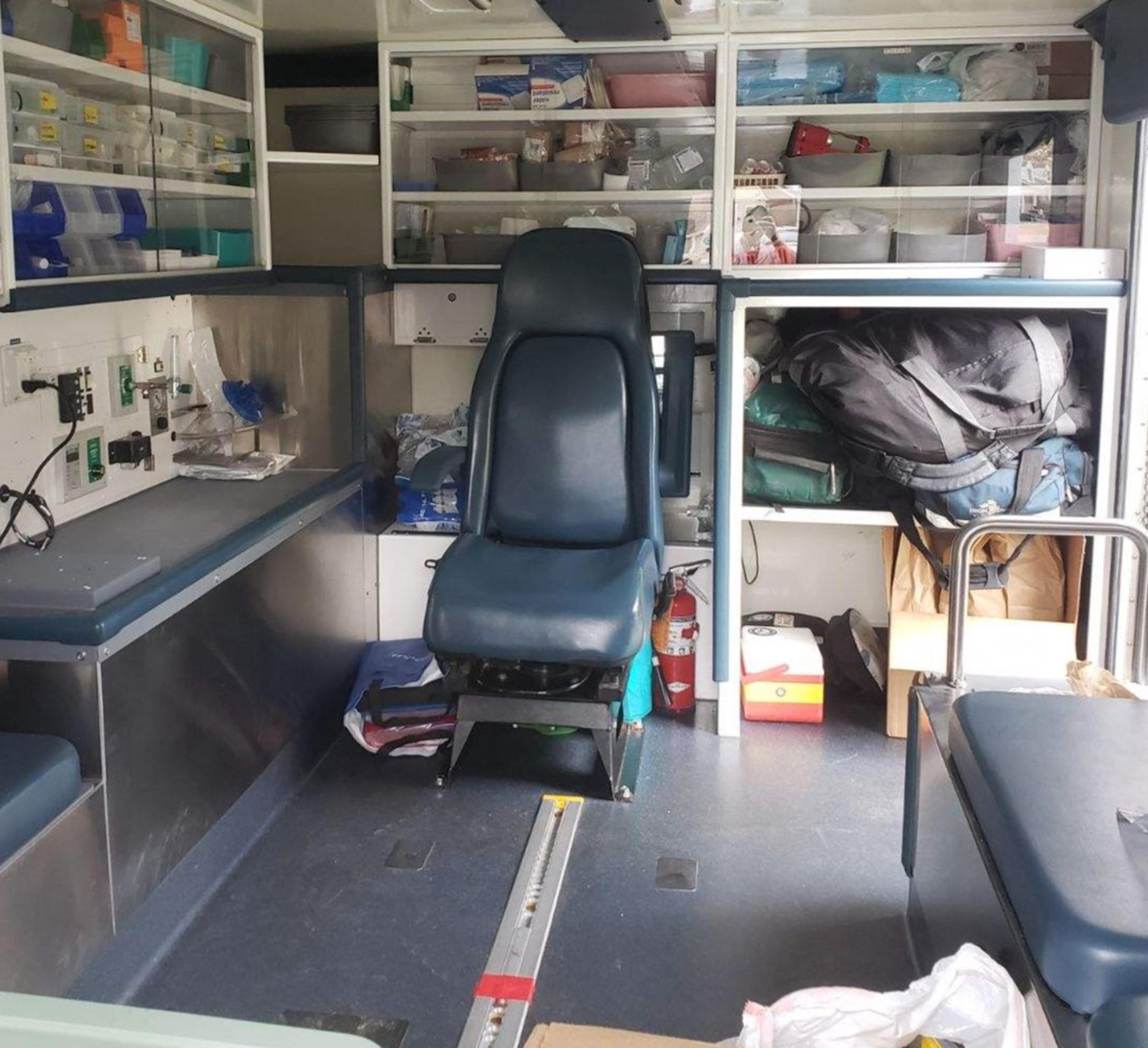
“A big part of (the grant) also went toward fuel for the vehicle,” Stinson said. “The vehicle is our mobile exam room. It’s basically our clinic on wheels. And so, to get to where people are rather than the barrier of needing them to come to us, we have to go to them. And that takes fuel. It takes fuel to run the electronics in the vehicle and all the things we’re carrying, like the EKG, ultrasound and other equipment.”
In 2024, SOT recorded more than 1,000 patient visits and referred 1,800 people to substance abuse or mental health services. They also referred 2,700 people to food pantries or soup kitchens. Stinson said he remembers how helpful it was when fellow employees at the restaurants and other jobs he worked at growing up took care of him as he navigated homelessness. He wants SOT to do that and more for people struggling through dire situations.
“Those times in my life were instrumental in me falling in love with people who live on the street and trying to help them and bearing their burdens because their life is hard,” Stinson said. “When I was on the street, besides some of the people I worked with and pastors at local churches that helped me, there was no Street Outreach Team. There was no street medicine team that was helping me. There was a semi-retired EMT that I worked with that bandaged my wounds from time to time and took care of me. And now I just try to do that for the people I encounter in Detroit.”
More Social Mission stories:
- The Green Apple Pantry Continues to Step Up to Feed Kent County Residents in Need
- 'It Changed My Life:' Patients Supported by BCBSM’s Strengthening the Safety Net Program Discuss the Crucial Impact of Free Clinics
- Because of His Love Outreach’s Maternal and Paternal Support Groups Equip Detroit-Area Parents, Couples with Crucial Mental Health Tools and Tips
Photo credit: Stanley Stinson



